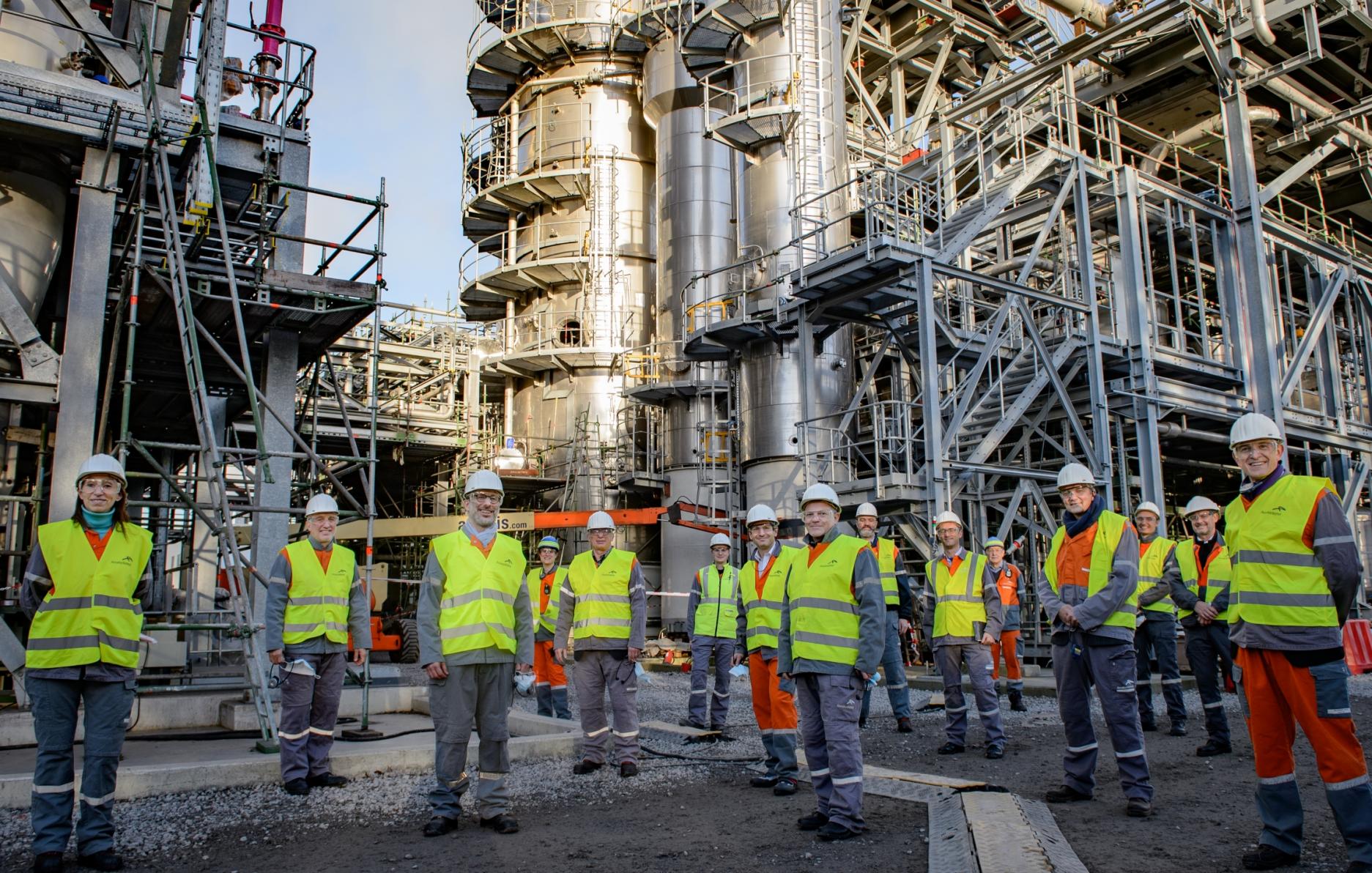Products
Product pages available in
EN - DE - FR - ES
Sustainability
News, events and stories

With large consumers of steel focussing their attention on the CO2 emitted by their suppliers – known as Scope 3 emissions – ArcelorMittal is working hard to achieve its decarbonization goals and ensure that CO2 emissions savings can be passed on to customers through its XCarb® initiatives. During a recent visit by a Renault Group delegation of materials, energy and environmental specialists to ArcelorMittal’s flagship steel plant in Gent, Belgium. The technical and commercial challenge of how to accelerate the decarbonization of steelmaking was a major topic for both companies, alongside the importance of steel to the circular economy. The visit took place end 2021 just days after the COP26 summit closed in Glasgow, where steel was in the spotlight as one of five Breakthrough sectors. The stated ‘breakthrough’ for steel is for near-zero emissions steel to be the preferred choice in global markets, with efficient use and near-zero emissions steel production established and growing in every region by 2030.
ArcelorMittal hosts an annual Alliance Renault-Nissan-Mitsubishi Top Technical Meeting, to review the technical roadmap for new products and coatings. This year, in addition, both companies agreed to add a new CO2 emissions KPI for co-engineering, to compare the CO2 emissions from a newly developed steel solutions versus a reference product, on top of the existing criteria of mass, cost and in-service performances which serve to help rate one solution versus the other.
"The Renault group's carbon footprint is one of the key indicators used to track the performance of our transformation levers, namely electric vehicles, connected cars and autonomous driving, new mobility offers, and the circular economy. And we have set an ambitious goal of reducing our supply chain CO2 emissions by 30% by 2030. We therefore really appreciated the opportunity to see the real projects that are reducing CO2 emissions from ArcelorMittal’s European operations, as well as our visit to the two Smart Carbon projects that are being built. We felt a genuine sense of purpose and optimism about decarbonizing steelmaking in ArcelorMittal and we look forward to the company accelerating its CO2 emissions reductions so more savings can be passed on to customers. A key challenge will be the cost induced by such green technologies and to what extent the automotive maker and the final customer should have to pay for this financial additional burden.”
Sabine Calvo, Renault Nissan Mitsubishi Alliance Global Vice President Customer Performance & CAE-Testing Engineering Division
Both companies have published climate action reports this year; Renault Group announced an objective of achieving carbon neutrality in Europe by 2040 and worldwide by 2050 and set a target to decrease the CO2 footprint from their main suppliers by 30% (compared with 2019) by 2030. Also this year, ArcelorMittal improved its Europe CO2 emissions reduction target from 30% to 35% by 2030, announced a group CO2 emissions reduction target of 25% by 2030 and committed to net-zero by 2050. To demonstrate the progress being made on decarbonization within ArcelorMittal Europe, Renault Group visitors had the chance to tour the construction sites of ArcelorMittal Belgium’s two groundbreaking Smart Carbon projects, Carbalyst and Torero, both of which are in the advanced construction stage and are due to be commissioned next year. Together, the two projects will generate CO2 emissions savings of up to 350,000 tonnes a year in the first stage, equivalent to the greenhouse gas emissions of a quarter of a million passenger vehicles being driven for one year.
- Carbalyst, also known as Steelanol, is a €165m industrial-scale demonstration plant that will capture waste gases from the blast furnace and biologically convert them into recycled carbon-ethanol, which can be blended for use as a liquid fuel or used as a chemical building block in plastic production. The technology was developed by LanzaTech, with whom ArcelorMittal has entered a long-term partnership, together with Primetals and E4tech.
- Torero is a EUR 50m large-scale demonstration plant to convert waste wood into bio-coal, partially replacing the fossil coal currently injected into the blast furnace.
As well as visiting Carbalyst and Torero, the Renault Group visitors saw a number of live projects that are reducing CO2 emissions. Gent’s newly revamped Blast Furnace B is one of the world’s most advanced blast furnaces, in terms of technology and CO2 efficiency. One key objective of the investment was to enable steelmaking to be at the heart of the circular economy. Recycled wood waste and pellets made from end-of-life plastics are already being trialled as an alternative reductant in the blast furnace, thanks to partnerships with companies including Dutch company Perpetual Next which has been providing bio-coal for Blast Furnace B since August this year.
ArcelorMittal’s customers can benefit directly from CO2 emissions reduction projects, thanks to the company’s XCarb® green steel certificates, which represent direct CO2 savings from projects such as Gent’s blast furnace transformation, verified by an independent auditor.
“We have worked for many years with our valued partners of the Renault-Nissan-MitsubishiAlliance, on breakthrough technology and solutions for the automotive sector. We were therefore very proud to be able to show them the result of several years of research and development into transforming our steel production processes, to reduce CO2 emissions.”
Paul Brettnacher, ArcelorMittal Europe – Flat Products’ CMO for Automotive, Tailored Blanks, Electrical Steels and Packaging
“We share the same goals and values in putting our products at the heart of the circular economy, and in taking seriously our responsibilities to cut CO2 emissions.”
Jeroen Van Lishout, ArcelorMittal Belgium’s Chief Operating Officer Primary, who hosted the Renault Group visit

During a recent visit by a Renault Group delegation of materials, energy and environmental specialists to ArcelorMittal’s flagship steel plant in Gent, Belgium, the technical and commercial challenge of how to accelerate the decarbonization of steelmaking was a major topic for both companies, alongside the importance of steel to the circular economy.







